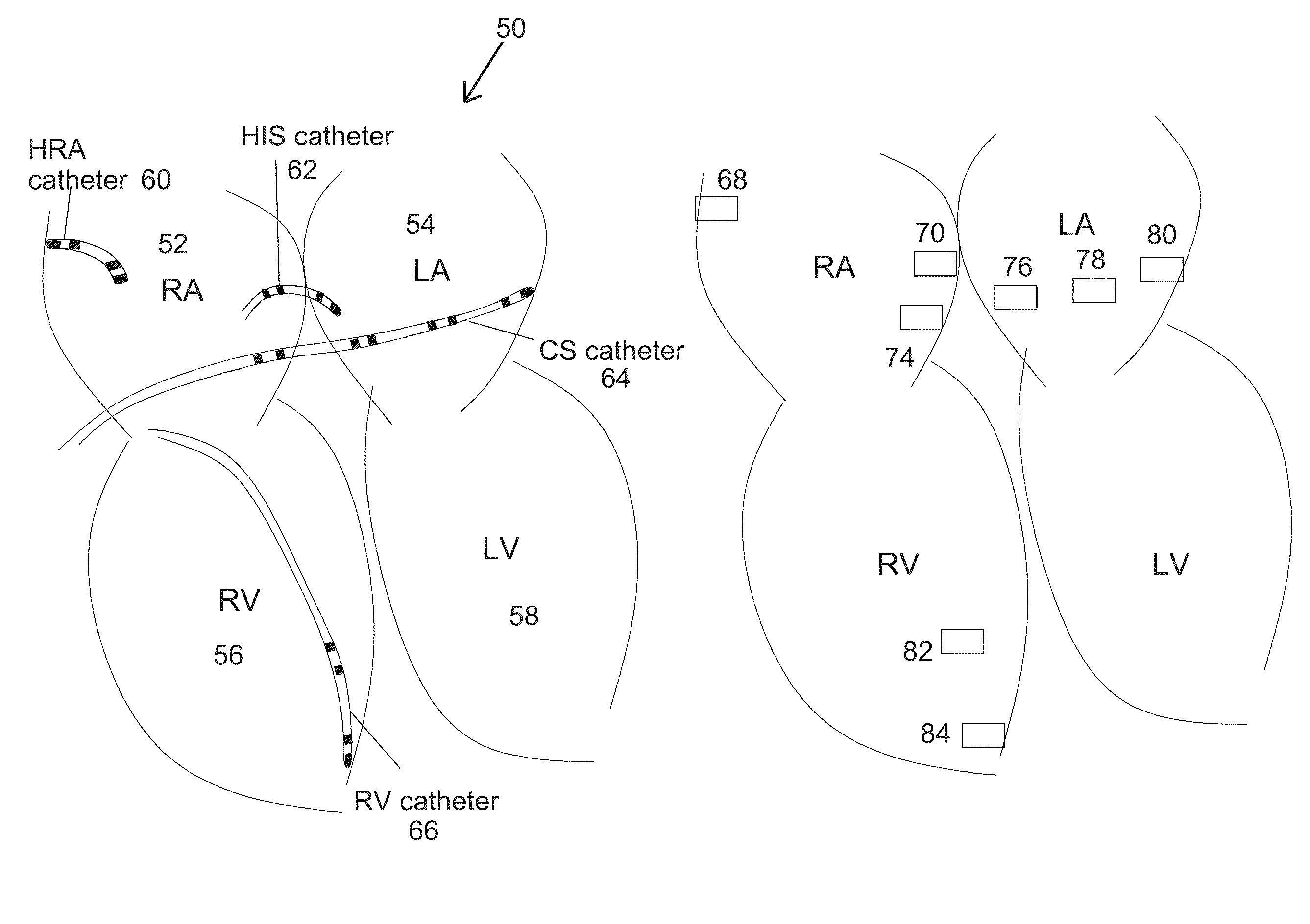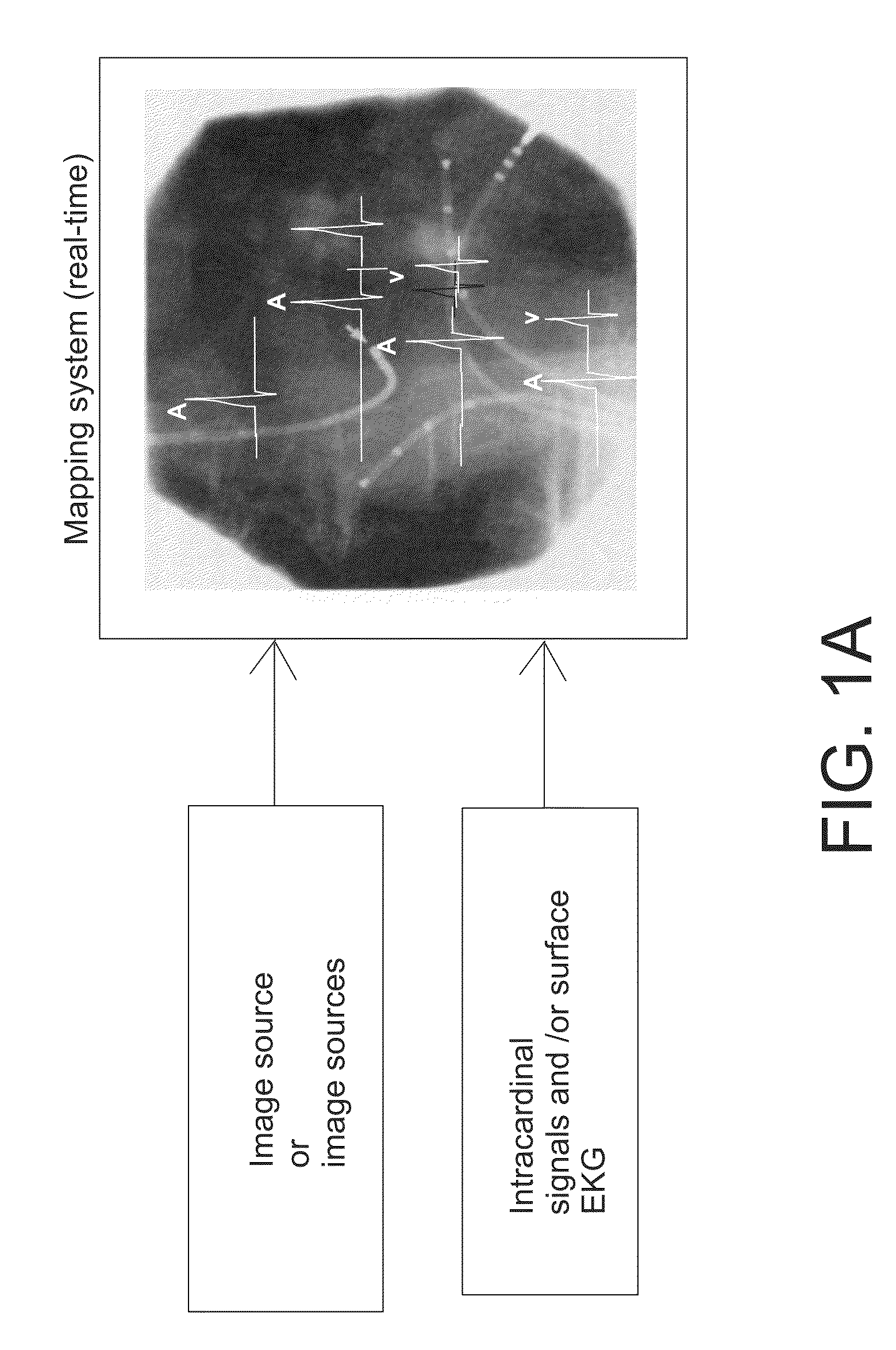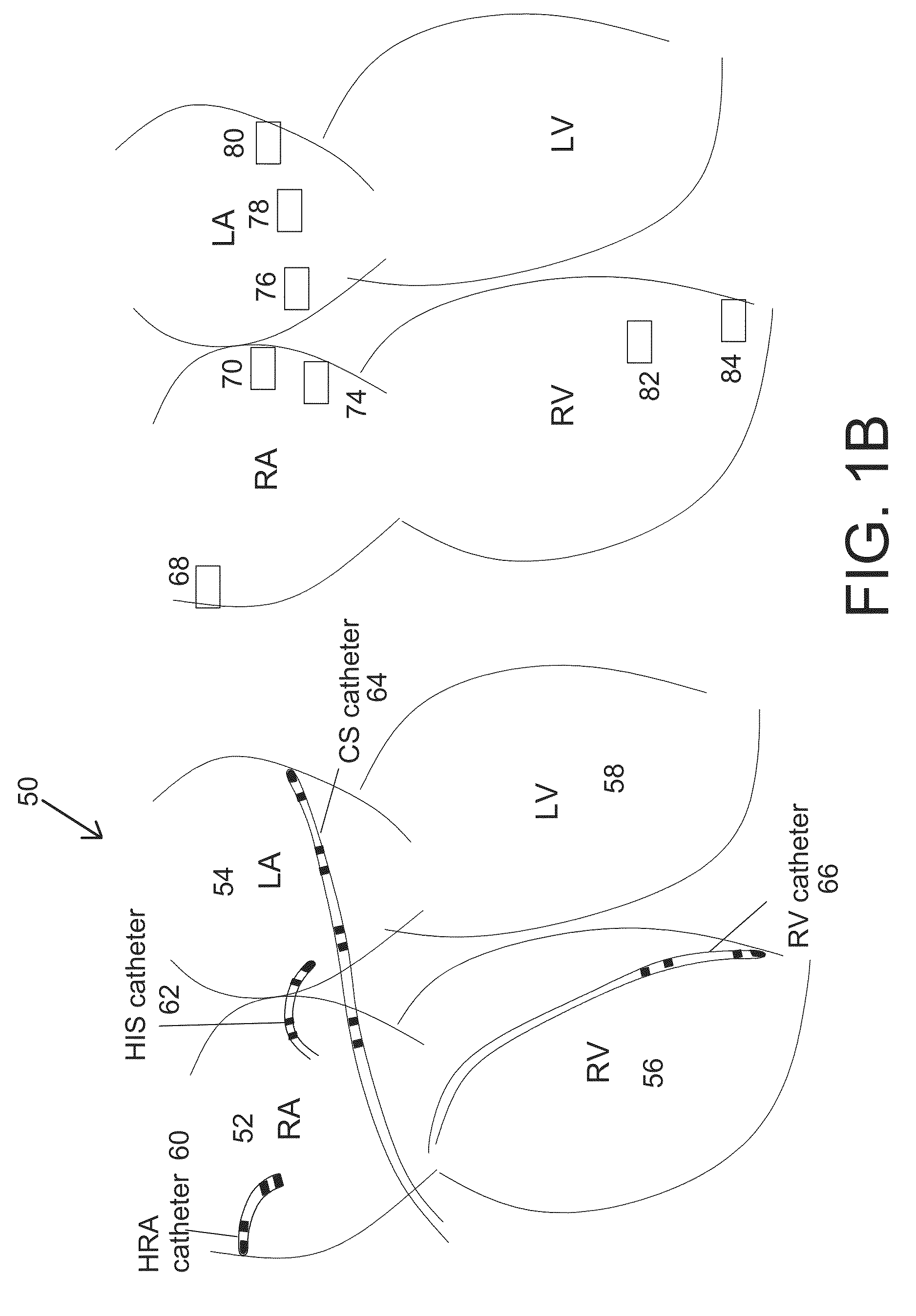Methods and system for real-time cardiac mapping
a real-time cardiac mapping and method technology, applied in the field of cardiac mapping technology, can solve the problems of inconvenient and time-consuming process of creating an electroanatomic map, inconvenient use, and inability to accurately predict the pathologic tachyarrhythmia,
- Summary
- Abstract
- Description
- Claims
- Application Information
AI Technical Summary
Benefits of technology
Problems solved by technology
Method used
Image
Examples
Embodiment Construction
[0112]The following description is of the best mode presently contemplated for carrying out the disclosure. This description is not to be taken in a limiting sense, but is made merely for the purpose of describing the general principles of the disclosure. The scope of the disclosure should be determined with reference to the claims.
[0113]In the cardiac electrophysiology art, electroanatomical mapping generally refers to superimposing of the electrical activity on an image or computer model of the heart. Patient's electrical timing information is generally color coded on a computer model. Prior art electroanatomical systems (Biosense Websters's Carto™ system and St Jude Medical's Navix™ system), generally collect information point by point, with the physician manipulating the mapping catheter within a chamber of the heart. The points are then captured on the computer by an operator. Each point contains location or geometry information as well as electrical timing information relative...
PUM
 Login to View More
Login to View More Abstract
Description
Claims
Application Information
 Login to View More
Login to View More - R&D
- Intellectual Property
- Life Sciences
- Materials
- Tech Scout
- Unparalleled Data Quality
- Higher Quality Content
- 60% Fewer Hallucinations
Browse by: Latest US Patents, China's latest patents, Technical Efficacy Thesaurus, Application Domain, Technology Topic, Popular Technical Reports.
© 2025 PatSnap. All rights reserved.Legal|Privacy policy|Modern Slavery Act Transparency Statement|Sitemap|About US| Contact US: help@patsnap.com



